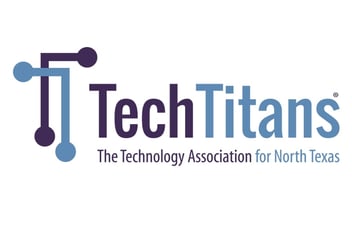You’ve gone through the RFP process. You’ve made your decision. Contract terms have been agreed to. Papers have been signed. It’s time to kick off this new relationship. Here are a few tips for handling the first 100 days with a new agency.
Treat the members of the agency team like they are your own badged employees.
It might seem obvious, but one the best things you can do at the beginning of the relationship is to treat everyone on your account team—the senior people plus all of the junior and extended staff—with the same level of respect that you would any new employee at your company. Respond to their emails quickly. Lend appropriate time to meetings and calls. Send them pertinent content so they can get up to speed quickly, and, in general, know that their success depends on the leadership you show and the amount of quality time you give them.
One of the best clients I ever had was a product lifecycle management software company who, in the first 60 days of the relationship, gave me access to anyone I wanted at the company, including their top customers. Because of that simple gesture, I conducted interviews, developed a targeted pitch playbook and spent every month pitching them stories that led to in-depth features, cover stories and national business press. I also forged powerful relationships with their people and their customers. I still stay in touch with some of them, and they were a client 15 years ago.
Work closely with the agency on the onboarding process.
Be responsive to the agency’s on-boarding process, but flexible to make it fit your unique needs. A good agency will have some idea of the process they want to use to do the strategy and onboarding. Listen to what they propose, but be ready to offer suggestions for adjustments since you know your company and people best. If the agency wants to create messaging via one-on-one interviews, but you think a more productive and inclusive way is for them to moderate a face-to-face workshop with stakeholders, tell them so they can create the best solution for your needs.
Also, understand that the onboarding process takes time. Many companies hire agencies and expect them to start running with tactics on Day One. That’s not typically a great model, since your two companies need time to get to know each other, and they need time to craft a sustainable PR strategy and timeline. Allow them to do that work in the first three months. It will make the program more successful in the long term and avoid a lot of false starts.
Listen!
Yes, listen. In the first 100 days of onboarding, your new agency is a little like a toddler. They are sponges, reading everything about you and your competition, asking tons of insightful questions, digesting your current marketing platform, sitting in on analyst and press briefings, and spending, literally, hours perusing your website. Listen to their observations about what is performing well in your marketing and what is not. Their outside opinions are extremely valuable to you during this phase. They haven’t drunk the Kool-Aid yet, and this fact puts them in a totally unique position. Listen and take action on their recommendations.
The language you choose to use matters.
Once at a corporate gig in a past job, I told one of my account executives at our agency that “I wouldn’t have time to ‘handle’ them until tomorrow,” when referring to a response were waiting on from me. I immediately realized my mistake by the raised eyebrow I received. Always remember that your agency is an extension of your team, and more than that, they are valued partners. Respect them. Don’t refer to them as “the vendor” and don’t treat them like a dumping ground, where you send all emails and requests that you don’t want to address. Treat them like the individuals that they are. Get to know them as people, and they will work harder for you than you could ever imagine.
Let your guard down occasionally.
When I managed an agency team in a corporate position, I used to have the typical weekly team status calls, but, over time, I formed a habit of just picking up the phone and calling my lead person to have a more ad hoc discussion. These talks gave me a chance to develop the relationship more, but I also used them in a strategic manner. I let the account leader see me sweat a little. I let them know my worst fears. This allowed the agency to see me as a real person and to fully understand how they could provide air cover so I could be successful. By not including all the agency team members in these interactions, it allowed me and the account leader to devise strategies to overcome roadblocks without weighing down or demotivating the other team members. This strategy went a long way in cutting through the clutter to getting the results I was hoping for and helped my agency team and me look like rock stars.
Respect the PR process.
It might sound trite, but all too often companies hire an agency based on their ability to think and strategize. Once the contract is signed, though, all of the agency’s counsel goes flying out the window at the behest of the client.
During the dotcom boom, I had quite a few impatient tech clients. Everyone did in those days. I will never forget one particularly frustrating moment with a startup CEO who ordered me to book him a week of meetings in San Francisco and New York with the likes of The Wall Street Journal, The New York Times, Fortune, Forbes, Fast Company and Red Herring (remember them?), among others. As I was updating him on my progress toward these rather lofty goals, he interrupted me and almost shouted “hurry up and book the meetings.” I explained that it wasn’t that simple, to which he said, “Yes, it is. You have to want to do it. You just have to sit down. Take your list out, and call them and schedule the meetings. That’s all it is.”
As I sat seething at his ridiculousness (and luckily choosing not to speak at that particular moment), my older and wiser boss jumped in to rescue me. She said to him, “Jeff, your background is sales, right? Well, media relations is no different. Michelle is selling these reporters on the concept of your company and product, and they are all essentially cold calls. No one has heard of you. She needs time to pitch them. She has to do extensive research on each person and each publication. She has to develop her pitch for each person. Then she has to refine it and try it out again, in a different way. She has to email each person a tailored message. She has to learn their preferences and their writing style. She has to know what topics they want to hear about. Then she calls them again. And then she waits, giving them an appropriate amount of time to see her email and respond. And she calls and emails them again. It’s called a sales cycle, and in our world it’s much harder than selling an actual product. It’s selling them on an idea.” This shut him up pretty quickly.
The point here is pretty clear: don’t assume you understand what is involved in the PR process. Trust your agency to guide you through it in the way it needs to be done. Your agency teams are experts.

 6 min read
6 min read





 10 min read
10 min read

